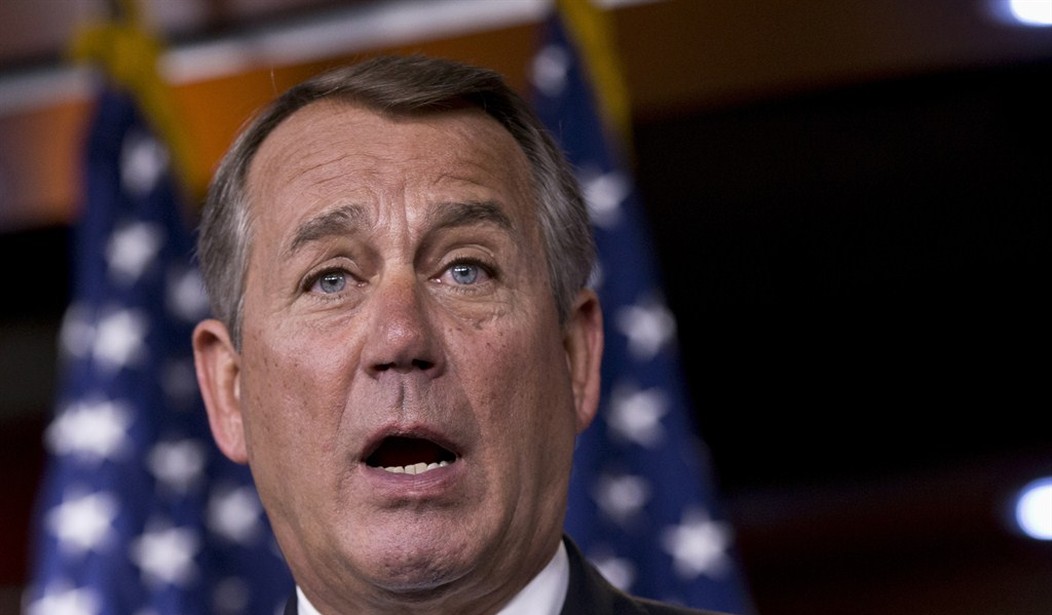Few places in the world function (and I use that term loosely) like Washington, DC.
“Washington loves to play this game of saying something can’t be done,” Heritage Action’s CEO Michael Needham told C-SPAN’s Newsmakers. “Politicians like to set expectations as low as possible so they can’t help but trip over them.”
Would Apple have rehired Steve Jobs if he’d explained why the company could not compete with Windows? Would colonists have taken up arms against the British if George Washington said victory was impossible? Would nearly 15 million first-time voters have pulled the lever for Barack Obama in 2008 had he explained what he couldn’t do?
Managing expectations may be a conventional political strategy, but it doesn’t inspire the American people and it won’t produce the type of sweeping policy victories that are necessary to save the country.
A reporter with deep ties to House Republican leaders characterized the ongoing debate over Obamacare as “a wink-wink kabuki dance of the highest order.” According to this reporter, an anonymous leadership aide promised Republicans “want to protect the American people from Obamacare.” Instead of putting forward a strategy – you know, leading – this leadership aide simply offered, “no one seems to [be] able to explain how we win a shutdown fight.”
House Republicans have been in this position before, of course. In 2011, they were faced with one government shutdown threat after another because the Pelosi-Reid Congress didn’t even try to pass their annual spending measure.
Throughout that debate, President Obama and many others attempted to blame Republicans and conservatives for a would-be shutdown. "Is this a political weapon we are handing our political adversaries? Of course it is," new House Budget Chairman Paul Ryan (R-WI) acknowledged. "But there's going to come a time in this country where we're going to have to stop thinking about that and do what we really think is right."
Recommended
In 2011, the right thing to do was to fight for spending cuts – the cuts Republicans promised the American people in their 2010 Pledge to America. House Republicans didn’t have the entire legislative process scripted, and it would have been foolish of them to have even tried.
No one could have scripted a budget fight that caused Harry Reid to call House Republicans “mean-spirited” because their bill would have eliminated funding for Nevada’s “cowboy poetry festival.” By the end of it all, the so-called partisan bickering saved American taxpayers $30 billion or so.
Later that summer, House Republicans insisted any increase in the debt ceiling would be accompanied by equal (kind of, but not exactly) cuts in spending. There was no formal end game when Republican leaders made that declaration; instead, it served as a rallying cry that shaped the entire debate. In the aftermath of the debt ceiling showdown, House Majority Whip Kevin McCarthy (R-CA) explained the dynamics:
“Would Democrats have ever agreed if they thought the new freshman class was going to roll over? No. The freshmen made our hand so much stronger. You had a fear of how far they would go. I’m sure the president looks back, too, and was fearful. But in negotiations, isn’t that the best thing?”
If the unnamed leadership aide was actually speaking for Republican leaders – and there is no way to verify because we don’t know the name of the aide or the aide’s boss – it does not appear there is any real desire to negotiate on the forthcoming year-end spending bill.
They’ll fight Obamacare later. Promise. Maybe.
Once Americans start enrolling in the Obamacare exchanges on October 1 with the expectation of receiving Obamacare subsidies in 2014, it could be too late. If we want to protect the American people from Obamacare, we have to act now. The outcome will depend on how well we make the case between now and September 30. But one thing is certain: There are no excuses for not trying.

























Join the conversation as a VIP Member